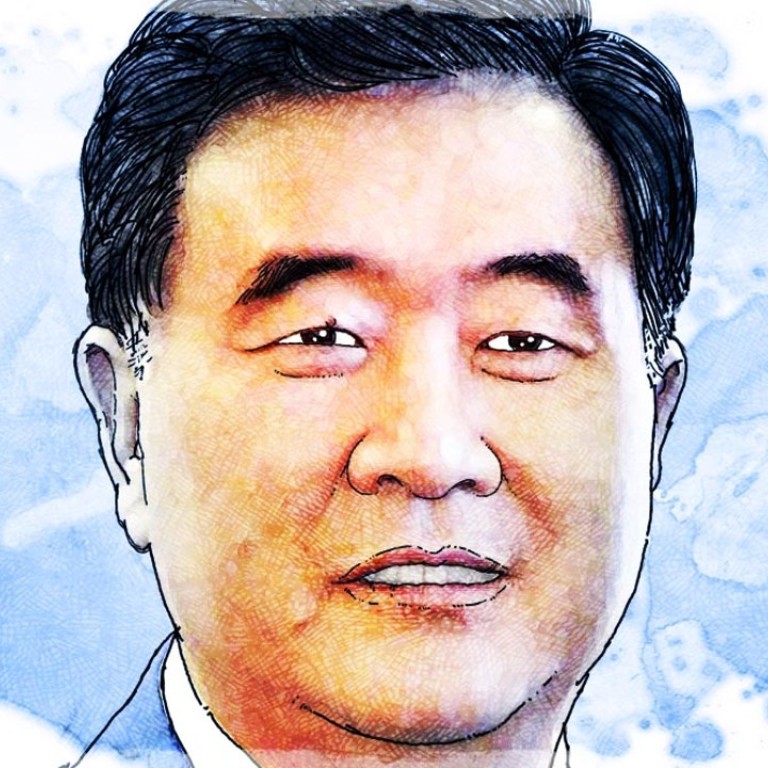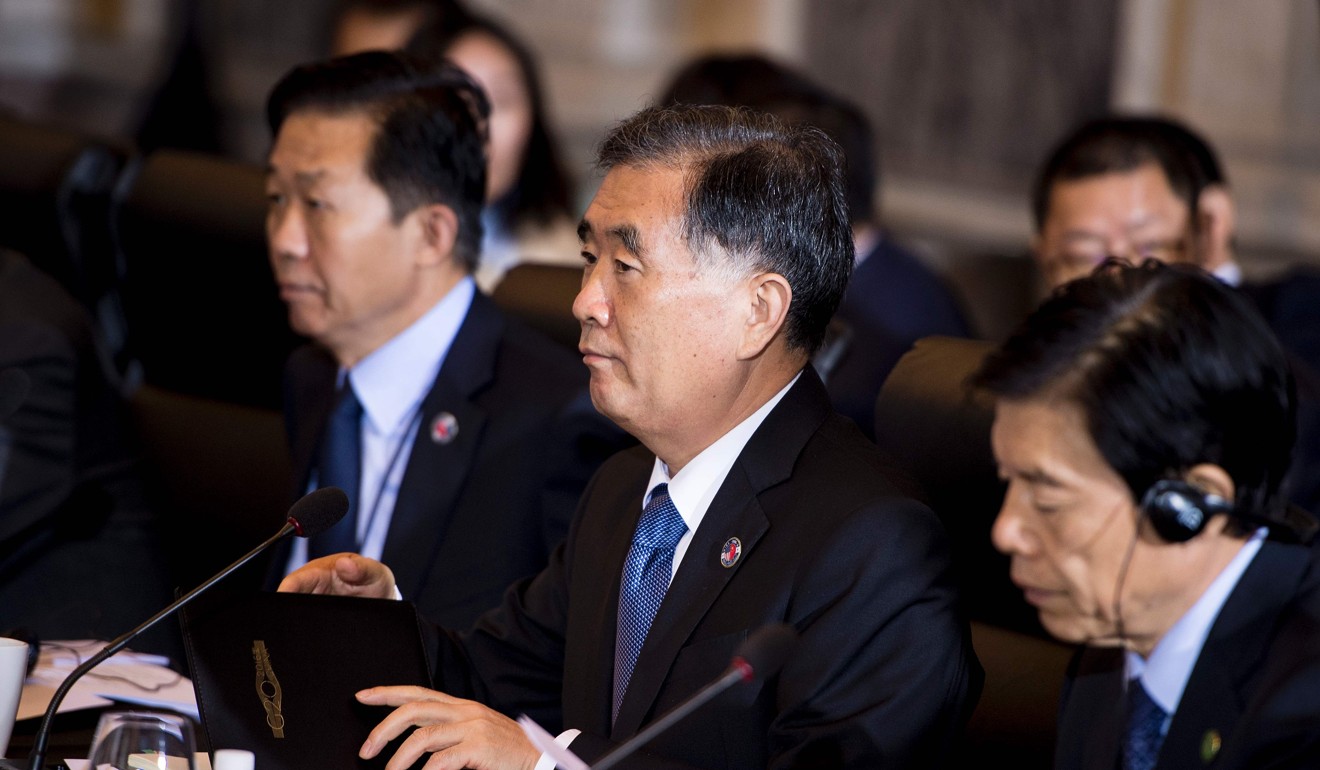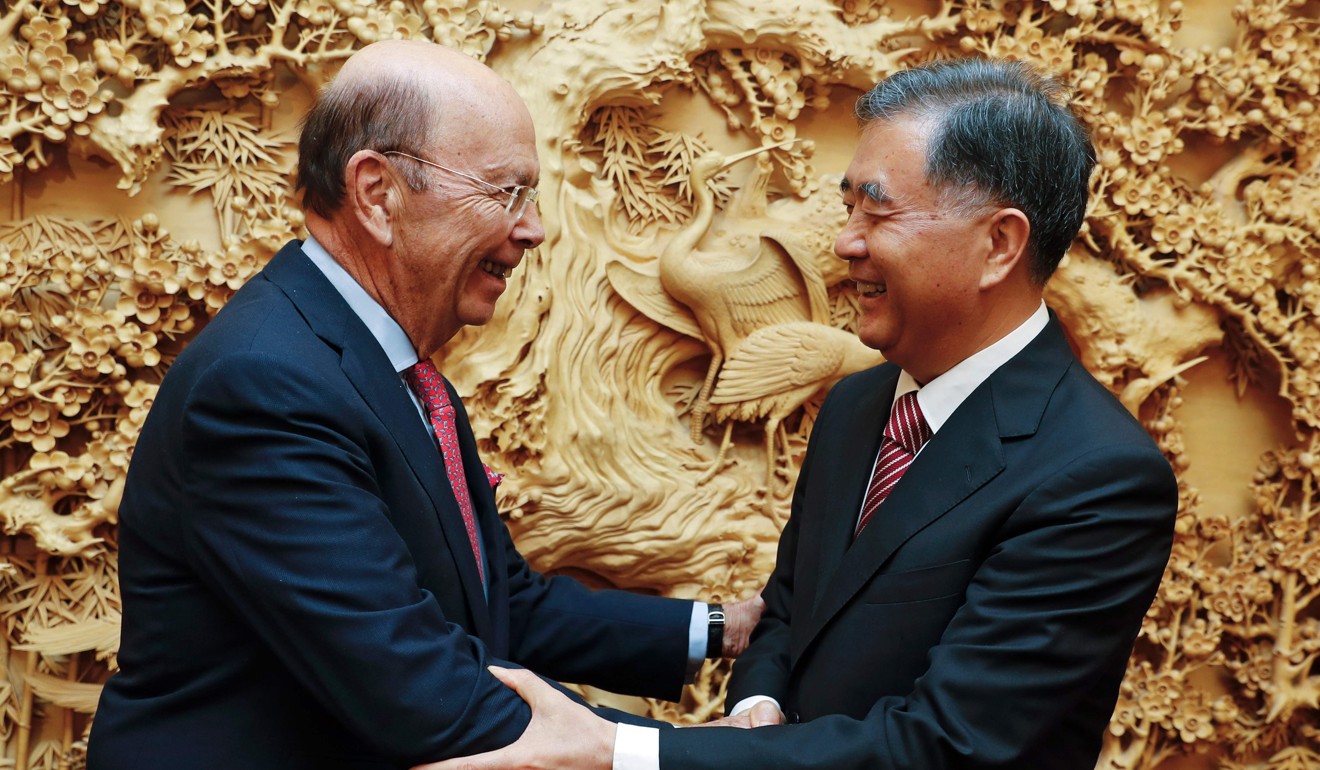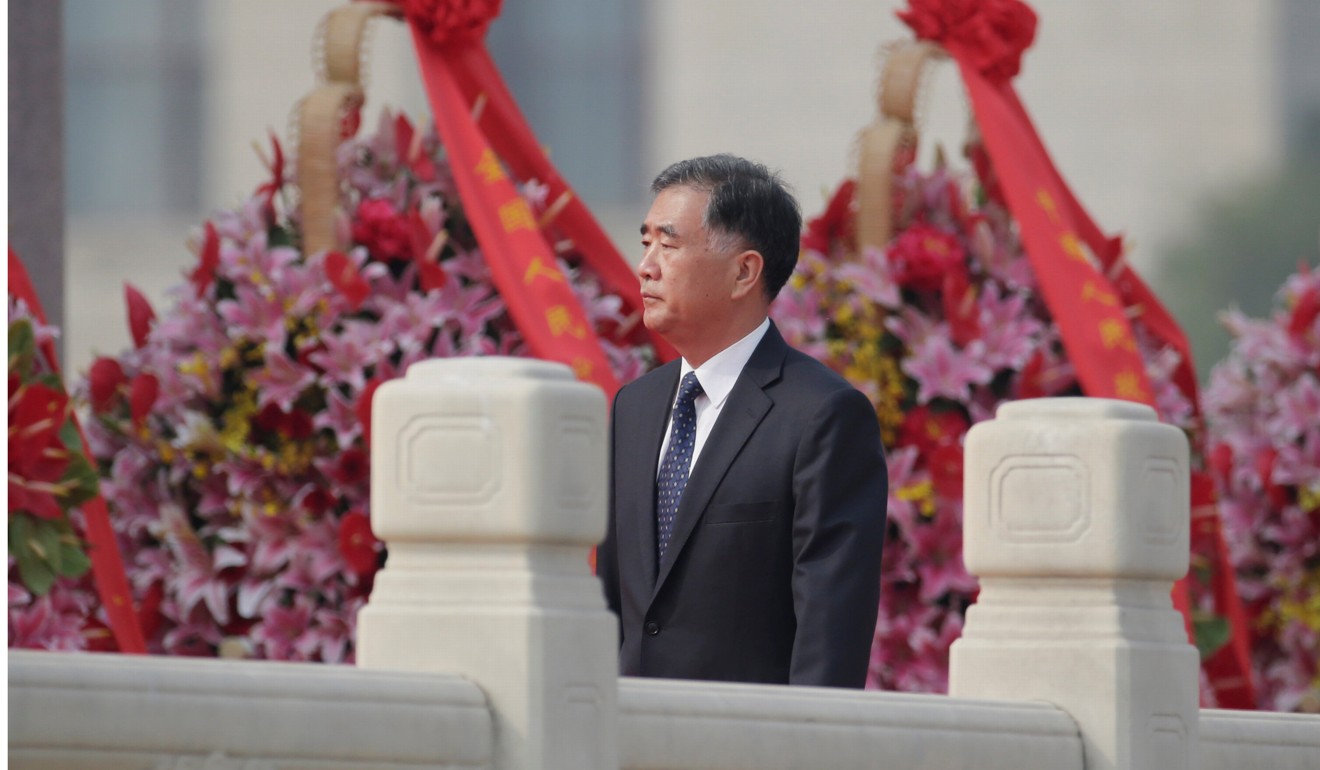
Wang Yang – the ‘joker’ and reformer in Xi Jinping’s new pack
The former Guangdong party chief is known for being a committed economic reformer as well as his loyalty to the president
Wang Yang is one of the new members of the Communist Party’s Politburo Standing Committee. Here we present a snapshot of his career:
Wang Yang, who has just been named as one of China’s top leaders, is perhaps best known outside the country for the unlikely image of a senior Chinese politician cracking jokes at a Sino-US summit.
Wang broke the stereotype of the humourless and bland Chinese Communist Party technocrat by jesting that China and America’s relationship was like a marriage, but then quipping that this did not mean that he and the then US treasury secretary Jack Lew would be entering into a same-sex relationship.
“We cannot go for a divorce like Wendi Deng and Rupert Murdoch have done,” he joked. “It would be too big a price to pay.”

Inside China, Wang is best known as a committed economic reformer and analysts have suggested that this and his loyalty to President Xi Jinping are among the reasons he has been promoted to a seat among the nation’s top leaders – the seven members of the Politburo Standing Committee.
He was particularly high profile when he served as party chief in China’s industrial powerhouse Guangdong province from 2007 to 2012. Wang tried to push forward the government’s reform agenda with a series of measures, including Guangzhou becoming the first city in China to publicly publish its budget and making it easier for people from poorer areas to migrate to the big cities for work.
He was also at the forefront of attempts to shift the province’s economy from cheap factory production to high-end manufacturing. His pro-market, more liberal approach become known as the “Guangdong model” and it was contrasted at the time with the “Chongqing model” promoted by the megacity’s former party chief Bo Xilai who favoured state-owned enterprises and traditional socialist values. Bo was later jailed for life for corruption.
Wang’s catchphrase during the initiative to refocus Guangdong’s economy was: “Empty the cage and let the right birds in”.
It was during his tenure in Guangdong that Wang also attracted international attention by ending the protests over land seizures by officials in the village of Wukan.

Sources suggest that Wang’s future role at the top of China’s government will be to oversee financial policy and to steer Xi’s priority project – poverty alleviation. Over the past five years Wang has headed a government leading group to tackle the issue.
More than 55 million people were lifted out of poverty in Chinese rural areas from 2013 to 2016, according to official data, but Xi has flagged that eradicating poverty will be one of his administration’s key goals in his second term.
Wang, 62, comes from Suzhou in Anhui province and quit school at 17 to work in a food processing plant.
He later joined the party and became an instructor, ultimately enrolling at the Central Party School in 1979 just as paramount leader Deng Xiaoping was launching his historic economic reforms. Wang quickly rose through the ranks of government, becoming mayor of Tongling in Anhui in 1989 and the province’s vice-governor in 1993.

An analyst who has followed Wang’s career said his liberal credentials would be useful to Xi to promote the public image of the government.
“Even though Wang left Guangdong four years ago, local officials and businessmen are still impressed by his liberal ideology and efforts for reform,” the analyst said.
“With Beijing now tightening ideological control, Wang’s liberal outlook could be helpful to balance the public image of the top leadership.
“Wang, however, is not so eager to ‘emancipate the mind’ now. Actually, he has seldom made bold, liberal comments in the past couple of years.”
The analyst also questioned whether Wang’s policies had succeeded in transforming Guangdong’s economy from old manufacturing to hi-tech industries, an initiative that did much to underpin his reputation as a liberal and reformer.
“The old birds have already died, but the new birds have not yet arrived – that’s the picture in Guangdong over the years,” he said.


